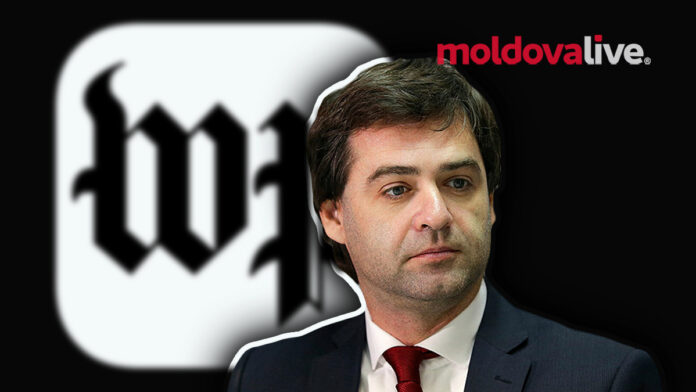In the wake of discussions surrounding the withdrawal of U.S. aid from Ukraine, the potential devastating repercussions for several nations, particularly those on Putin’s radar, are not fully comprehended by some. For Moldova, a small Eastern European country, international support to its neighboring Ukraine is viewed as a guarantee of its own security. Currently, the possibility of such withdrawal looms large, which could have catastrophic effects on the region and set a grave global precedent.
This message was emphatically conveyed by Moldova’s Foreign Minister, Nicu Popescu, during an interview in New York last week, conducted behind the scenes of the United Nations General Assembly meetings. Popescu stressed, “What is happening in Ukraine is not limited to Ukraine alone. What unfolds in Eastern Europe has repercussions that extend far beyond. It’s a matter of global consequence.”
Since February of last year, when Russia launched its full-scale invasion of Ukraine, Moldova, a non-NATO and non-European Union member (though actively seeking EU accession), with a small army, has faced energy challenges, high inflation, disrupted trade, and an influx of refugees. All of this unfolds as the country grapples with managing its strained relations in the separatist Transnistria region, where approximately 1,500 Russian troops are stationed.
“This war has a negative impact on any country worldwide… but the closer you are to it, the more you suffer,” Popescu remarked.
While Moscow has long sought to influence Moldova through an intricate web of tactics, Putin has recently escalated efforts to harass and undermine the pro-Western government there. Though no Russian missiles have fallen on Moldovan soil, Russia is waging a non-military war on the country, as Popescu explained.
Moscow has illicitly injected funds into Moldovan politics, leveraged energy as a persuasive tool, attempted to orchestrate a coup, disseminated extensive disinformation, issued bomb threats, launched numerous cyberattacks, and trained fake protesters to target law enforcement and state institutions.
It is remarkable that, given these challenges, Moldova remains relatively stable. However, the price paid to counteract the consequences of the war in Ukraine while combatting Moscow’s meddling has forced Moldova to divert funds originally intended for infrastructure, investment, and development, the foreign minister explained.
Nevertheless, Moldova is not asking American taxpayers to send money; the country already secures around $300 million in commitments, embedded within outstanding bills to Ukraine. Moldovan leaders prefer to urge the United States not to significantly reduce economic and humanitarian aid to Ukraine, especially as an increasing number of congressional Republicans, including GOP presidential candidates, promise to do so.
FOR THE MOST IMPORTANT NEWS, FOLLOW US ON LINKEDIN!
The Biden administration pledges approximately $24 billion in additional military, economic, and humanitarian assistance to address Russia’s invasion and support Ukraine’s resistance, as well as mitigate the war’s regional effects. In this latter regard—the regional dynamics—the issue seems somewhat overshadowed in the debates.
“Any assistance provided to Ukraine—military, economic, financial, or energy-related—also represents an investment in Moldova’s security, peace, and stability,” Popescu asserted. “Moldova enjoys peace, and this is thanks to Ukraine’s ability to resist the Russian army and keep it away from our borders.”
In other words, if a group of Republicans were to succeed in significantly cutting U.S. aid to Ukraine, Moldova’s delicate situation could collapse, and Moscow’s violence could spread. Popescu further contends that abandoning Ukraine would embolden aggressors to reach other regions, attacking smaller, weaker democratic neighbors.
“Therefore, what happens in Ukraine already has and will continue to have massive direct implications, affecting U.S. presence worldwide—U.S. credibility, and not just in Eastern Europe but also in the Asia-Pacific region,” he said.
Republicans in the House of Representatives removed Ukraine from a 45-day spending reduction law passed on Saturday, ignoring calls from senior officials in the national security establishment. The Senate proposed a $6.1 billion fund for Ukraine, enough to sustain aid for 45 days. However, with a government shutdown looming on Saturday, the Senate backed the House’s position, passing the funds without any allocation for Ukraine.
Senate leaders have committed to soon voting on a separate Ukraine aid bill. But House Speaker Kevin McCarthy (a California Republican) has not committed to bringing the measure before the House, leaving the fate of this aid in limbo.
Even in the event of success, support for aid to Ukraine among GOP members is waning. This presents a significant issue as the war may continue for an extended period. Popescu maintains that the U.S. and European leaders must prepare for a protracted war, implementing measures such as ramping up arms production capacity, re-routing supply chain access for food supply, and bolstering new energy resilience.
“Unfortunately, the eventual end of the war is nowhere in sight,” he stated. “But the Ukrainians have this astonishing and enduring capacity to resist. They won’t give up. But the more support they enjoy, the shorter this war will be.”
Putin regards the military aspect as just one facet of his multifaceted war against the West. Therefore, the United States and its allies must contemplate an equally diverse response. The withdrawal of U.S. aid to Ukraine would come at an increasing cost, leaving many nations at the mercy of Russia.


